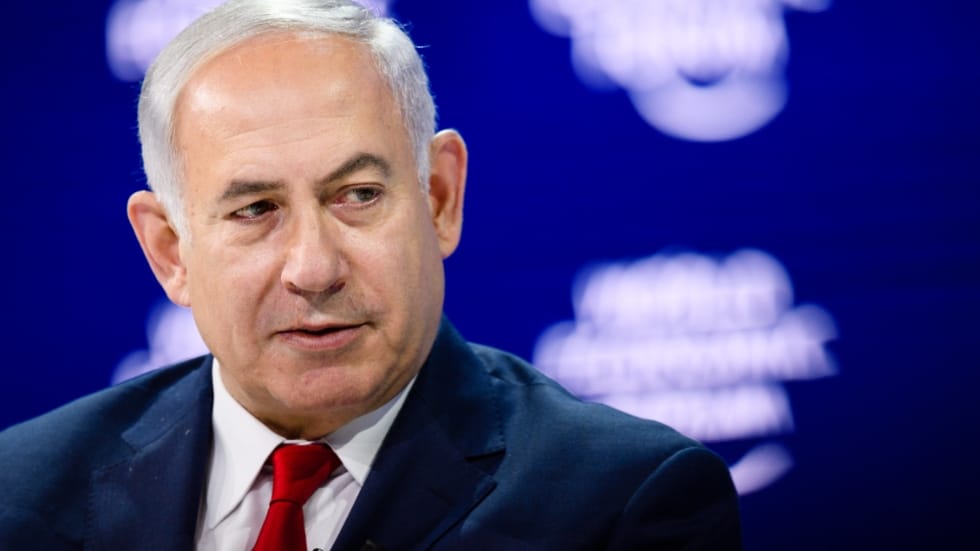If Washington does not secure a new nuclear deal or take military action itself, incoming Prime Minister Benjamin Netanyahu will attack Iran, according to Tzachi Hanegbi, a longtime member of Israel’s Likud party. The former settlement minister issued the warning while speaking with Channel 12 news on Friday.
Hanegbi declared that Netanyahu “will act, in my assessment, to destroy the nuclear facilities in Iran.” He said “Israel will for the first time be facing a regime with nuclear weapons” and went on to describe the alleged Iranian threat as a “fire that’s been burning inside [Netanyahu] for more than 25 years.” Hanegbi previously claimed his country would go to war with Tehran if Joe Biden won the 2020 election and tried to return to the Joint Comprehensive Plan of Action, the nuclear deal with Iran.
In recent weeks, State Department spokesman Ned Price and Biden’s special envoy for Iran Robert Malley have said the nuclear deal is no longer the administration’s “focus.” Malley went so far as to say “It is not on our agenda” and that officials will not “waste time” attempting to revive the JCPOA.
“[We] are already looking at the situation as if there is no nuclear deal,” a senior Biden administration official told Axios last month, adding that the White House is “taking steps to ensure the US has a ready military option.”
However, despite an endless stream of nuclear rhetoric emanating from Washington and Tel Aviv, the Pentagon’s latest Nuclear Posture Review (NPR) notes that “Iran does not currently pose a nuclear threat,” instead claiming it continues to “develop capabilities that would enable it to produce a nuclear weapon should it make the decision to do so.” It acknowledges that the JCPOA “previously constrained” those activities.
Beginning a year after the Donald Trump administration illegally withdrew from the deal, Iran expanded its nuclear program by building advanced centrifuges and enriching some uranium tetrafluoride to 20%, for use at the Tehran Medical Research Reactor, and some uranium hexafluoride to 60%. Iran has said it will not enrich beyond 60% purity even if the talks fail.
Iran has never attempted to enrich uranium to 90% purity, which is the minimum required for weapons grade.
Those decisions came as a direct response to Washington’s renewed economic war and myriad Israeli attacks, including sabotage and bombings at nuclear facilities, as well as targeted killings of top Iranian scientists. Though the JCPOA limits Iran’s uranium enrichment to 3.67%, Tehran’s responses are permitted under the deal, which contains language allowing Iran to walk back its commitments if the other parties have done the same. Despite scaling back compliance, Iran never abandoned the JCPOA, and its retaliatory measures, demanded by parliament, were designed to build leverage for negotiations.
Moreover, the NPR also plainly states “Iran does not today possess a nuclear weapon and we currently believe it is not pursuing one.” The new National Defense Strategy includes the same admission.
Biden took an extremely hard line during the indirect, EU-brokered negotiations which aimed to return Washington to the JCPOA. Since taking office, Biden has only expanded Trump’s “maximum pressure” sanctions campaign against the Islamic Republic and embarked on other hostile policies in coordination with regional allies.
Earlier this year, the Israelis launched multiple drone strikes and assassinations inside Iran, while the US began bombing Syria repeatedly in August, in what the Pentagon described as a message to Tehran. The United States and Israel have also sought to surround Iran with a NATO-style alliance made up of America’s Gulf dictatorship partners.
Iran nonetheless made some significant concessions during the nuclear talks, which seemingly brought both sides much closer to a deal after the European Union presented a “final” proposal. However, negotiations stalled in September after Tehran made demands regarding sanctions relief and guarantees which the US refused to accept after consulting with the Israelis. Tel Aviv and bipartisan Iran hawks in Congress intervened with a full court press to prevent Biden from lifting sanctions.
The Israelis also demanded Washington ensure a “credible military threat is put on the table” to compel concessions regarding Iran’s ballistic missile deterrent. This is likely similar to the new deal Hanegbi is referring to.
In September, American B-52s, eyeing Tehran, flew over the Middle East, while National Security Council Spokesman John Kirby announced that Biden was requesting “other available options” against Iran. The talks stalled out that same month.
Concurrently, the Pentagon inked a nearly $1 billion contract with Boeing to provide Israel with four refueling planes – which it would need in order to reach Iran with its bombers. The planes are not expected to be delivered until 2025. Without the new aircraft, Israel would have to rely on aging tankers or attempt to refuel in the United Arab Emirates or Saudi Arabia. Earlier this year, the Israeli military’s chief of staff Aviv Kohavi said “[we continue] to prepare vigorously for an attack on Iran and must prepare for every development and every scenario.” If Tel Aviv started this war, the US would be likely to intervene, as Israel also lacks the bunker-busting bombs needed to strike Iran’s underground nuclear facilities.
If Israel was truly concerned about Iran’s alleged pursuit of nuclear weapons, they would support the JCPOA, which mandates the most comprehensive International Atomic Energy Agency (IAEA) inspections regime ever implemented.
As Antiwar.com columnist Ted Snider has noted, “[p]rior to the US illegally pulling out of the JCPOA, Iran was in full compliance with its JCPOA commitments. Eleven consecutive [IAEA] reports verified that Iran was completely and consistently in compliance with their commitments under the agreement.”
At any rate, Iran has been a signatory of the Non-Proliferation Treaty (NPT) since 1970. Israel has never signed the NPT due to its open-secret nuclear arsenal thought to contain hundreds of weapons – technically making decades of American aid to Tel Aviv illegal under US foreign assistance laws.
This article was originally featured at Antiwar.com and is republished with permission.








